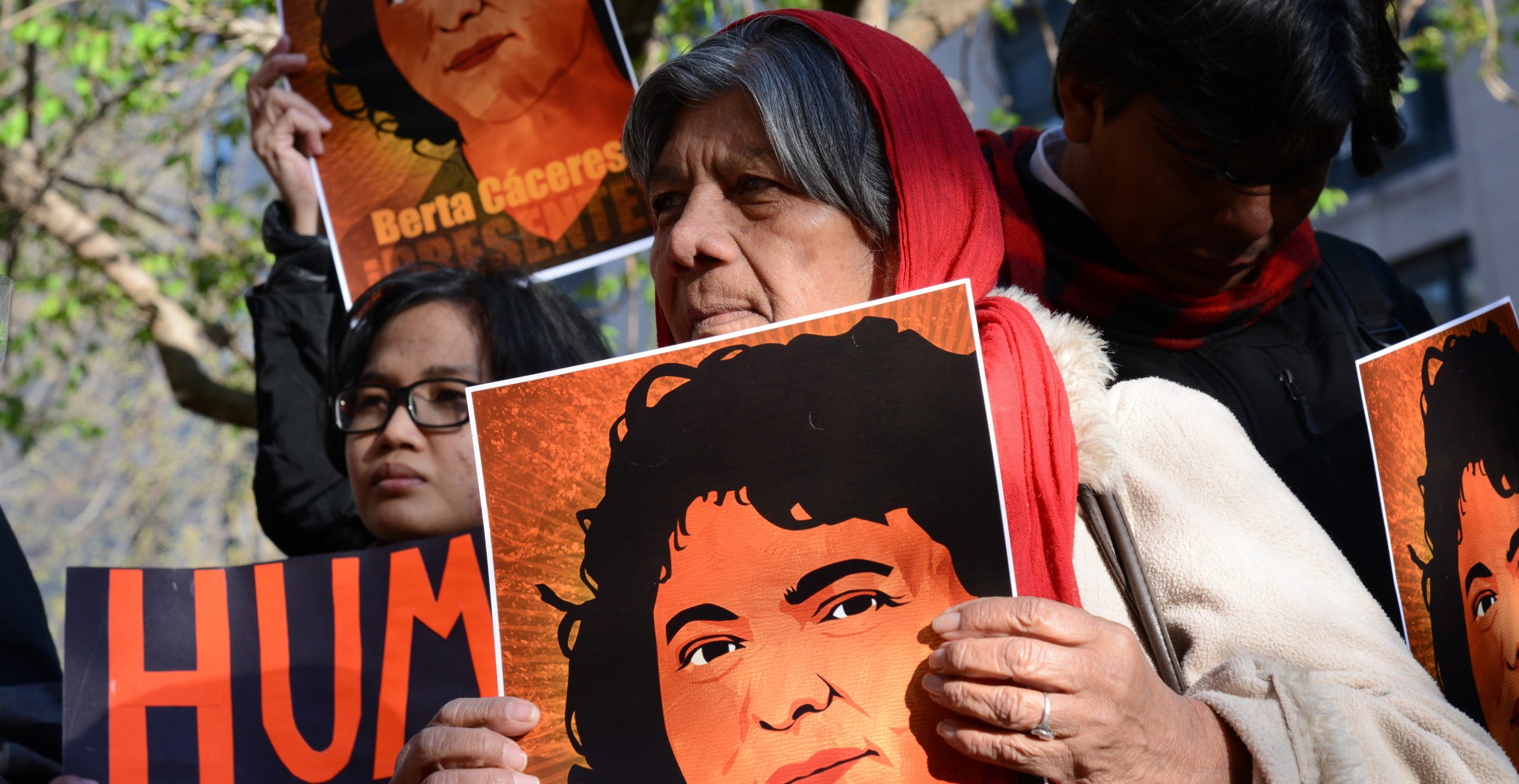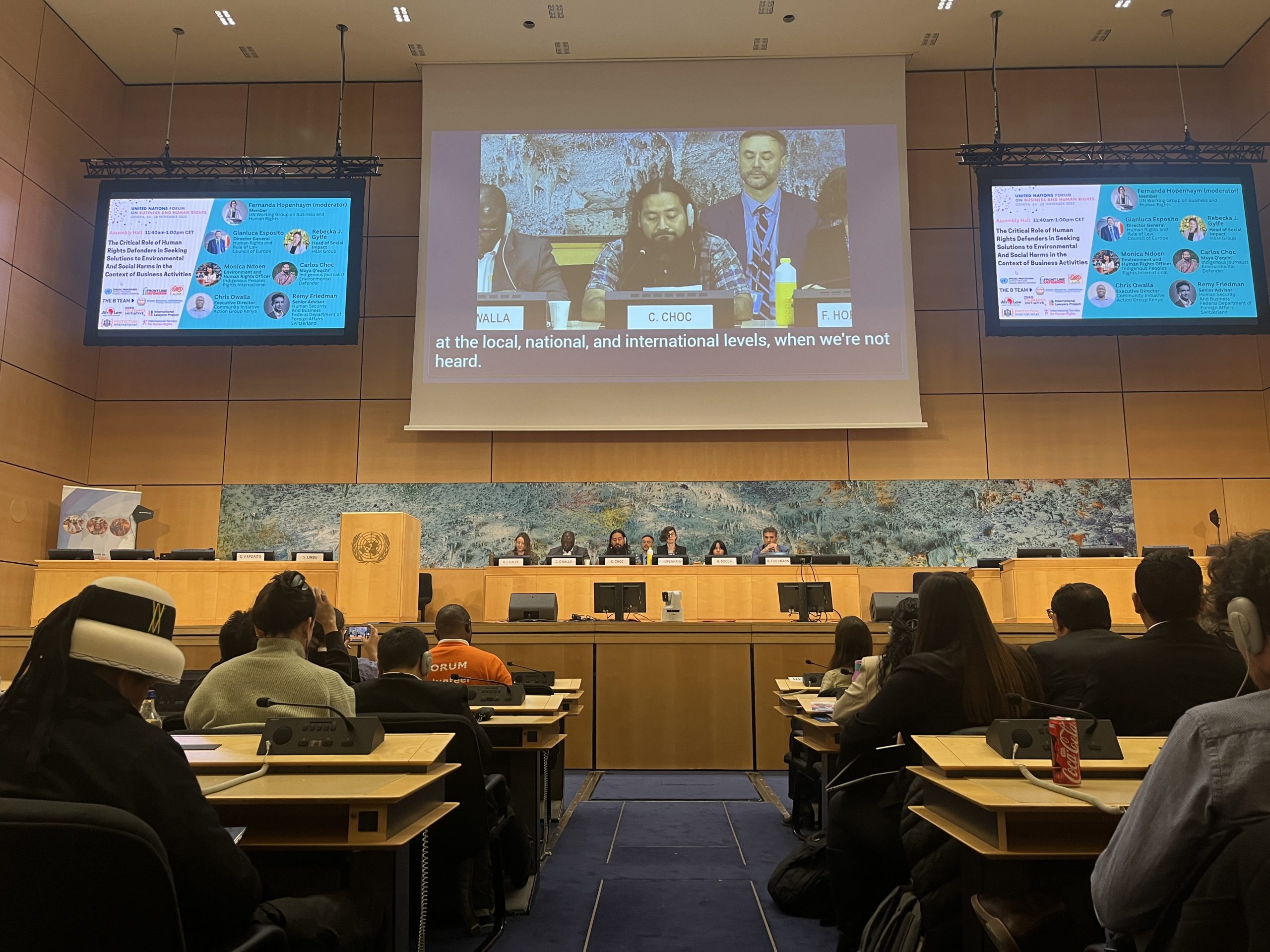(Geneva) – The Human Rights Council’s resolution on business and human rights should recognise the critical role of human rights defenders in helping victims to access remedies, and pushing for accountability for business related human rights violations, a group of NGOs said today .
Addressing the UN’s expert group on business and human rights, a group of human rights defenders participating in the 32nd session of the Human Rights Council and an ISHR training and advocacy programme, expressed frustration at the slow pace of effective remedies becoming available for victims when their rights are violated by businesses. The statement by ISHR, which was joined by the Business and Human Rights Resource Centre, Migrant Forum Asia, PODER (Mexico) and Justica Global (Brazil) also highlighted the threats, attacks and restrictions faced by human rights defenders in this regard.
Norway, Argentina, Ghana and Russia are currently proposing a resolution on this issue to the 47-State human rights body. Initial drafts of the proposal remain silent on the threats and protection needs of human rights activits pushing for adequate remedies.
‘If the Human Rights Council wants to maintain its relevance for rights protection on the ground, its resolutions must reflect real concerns,’ said Michael Ineichen, Programme Manager (Corporate Accountability) at ISHR.
‘Given the global incidence of killings, threats and attacks on defenders supporting victims in seeking remedies, a resolution not explicitly recognising their risks and valuable work will appear very much removed from this reality,’ Mr Ineichen said.
The full text of the statement is below:
On the fifth anniversary of the UN Guiding Principles it is more critical than ever that the Council puts the right of victims to access an effective remedy for violations of their rights at the centre of attention.
We share the Working Group’s concern articulated in the report on the Asian Regional Forum about ‘the lack of progress in this regard, on the part of Governments and business enterprises’.
For instance, in Mexico, an environmental and social disaster caused by Grupo Mexico’s coppermine in 2014, with 40 million litres of toxic substances spilled in the Sonora river affecting 25,000 people, is still met with impunity.
In Brazil, we are concerned that the authorities’ agreement with Samarco to settle claims resulting from the rupture of a tailings dam in Mariana mentioned by the Working Group may be used to prevent legitimate legal action. If so, what will you do to engage with Brazilian authorities in support of effective remedies for victims?
Among other avenues, such as the treaty initiative, and the emphasis on national action plans on business and human rights, the OHCHR guidance on ‘improving accountability and access to remedy for victims of business-related human rights abuse’ helps clarify legislative and regulatory action required for better protection of this right to access remedy.
As it outlines, human rights defenders play a critical role in supporting accountability for human rights violations involving businesses. They organise communities and workers, and assist victims to secure an effective remedy.
In doing so, human rights defenders face serious restrictions and risks, which undermines the right to an effective remedy. As the study highlights, ‘victims, witnesses, human rights defenders, whistle-blowers and their legal representatives’ must be protected.
So too must fundamental freedoms. As the Working Group’s communication to Thailand alleges, without freedom of association migrant workers were unable to advocate for themselves and thus subjected to forced labour.
In concluding, we urge the Human Rights Council – first and foremost the members of the core group on business and human rights Norway, Ghana, Argentina and Russia – to ensure their resolution reflects the reality on the ground.
The full range of actors involved in securing access to remedy and pushing for accountability, including human rights defenders, must be explicitly recognised. The resolution must be a clear call on States and corporations to refrain from attacking, threatening, harassing and limiting human rights defenders, and instead to robustly protect them and their work.




